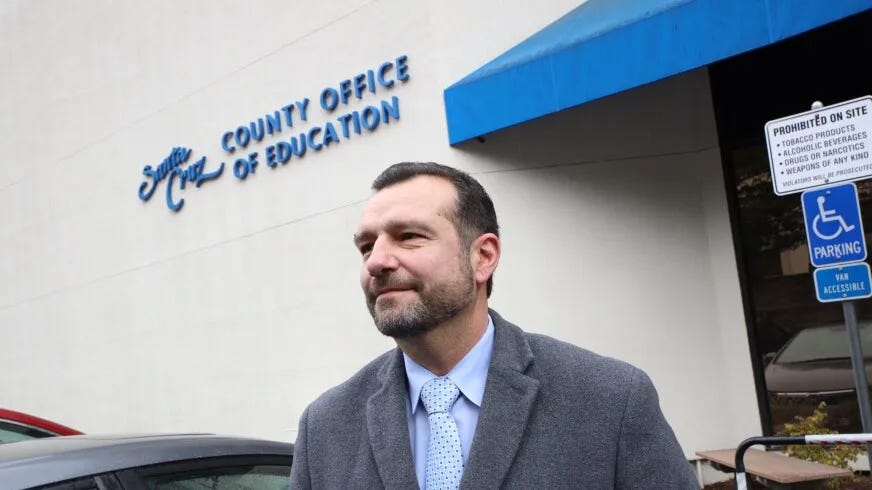RE: Concerns Regarding Recent Rhetoric and Conduct
Response to Santa Cruz County Superintendent of Schools, Faris Sabbah.
Dear Dr. Faris Sabbah,
Thank you for your letter titled, Concerns Regarding Recent Rhetoric and Conduct. I respect your decades of service to PVUSD and Santa Cruz County. But I must address the serious concerns in your letter—not just what was said, but what was left unsaid.
Framing board member comments as invoking “anti-Semitic tropes” without directly naming or analyzing those comments reduces a complex and painful debate to vague accusations. This tactic chills speech, especially when used against trustees of color challenging systems of power. As Professor Keeanga-Yamahtta Taylor writes, “The problem with liberalism is that it often demands civility from the oppressed while allowing power to remain unchallenged.” We must ask: whose discomfort is being centered when our board addresses racial inequity?
The comments made on April 16 were aimed at a group of individuals—many of whom have aligned with far-right organizations—that sought to shut down a curriculum rooted in Black, brown, and Indigenous scholarship. The target was not Judaism, but injustice. There’s a growing national trend of weaponizing accusations of bias to suppress ethnic studies and anticolonial education. A 2022 UCLA report titled “Threats to Ethnic Studies: An Analysis of the Attacks and a Call to Action” highlights this strategy, showing how critics use the language of inclusivity to dismantle culturally responsive teaching.
Meanwhile, where is the outrage for the consistent erasure and trauma experienced by our Black, brown, Indigenous, and Palestinian students? According to the ACLU, over 60% of students in California public schools are students of color, yet less than 15% of the curriculum centers their histories and perspectives. When students and families fight to see themselves reflected in what they learn—and when a board finally listens—they deserve more than calls for “professional conduct.” They deserve support.
You referenced concerns about the Brown Act. If there were procedural errors, they should be addressed. But let’s not pretend that legal formalities are the core issue here. The larger problem is that PVUSD is under political attack for implementing a curriculum designed with and for its students—many of whom have been systemically excluded from decision-making for generations. Calls for conflict resolution and training are often used as tools to neutralize transformative leadership, especially when that leadership comes from people of color.
I’m not interested in performative inclusion. I’m interested in justice. And justice requires honesty, even when it makes people uncomfortable. As Paulo Freire reminds us in Pedagogy of the Oppressed, “Washing one’s hands of the conflict between the powerful and the powerless means to side with the powerful, not to be neutral.”
I will continue to speak out against all forms of racism, including antisemitism. But I will not remain silent while justice is redefined as decorum, or while trustees who fight for their communities are asked to “recommit” to respect, rather than being respected in return.
Our district’s students—especially those whose families labor in fields, face deportation threats, or have been displaced by floods—deserve leaders who will fight for them. That’s what I was elected to do. And I intend to keep doing it.
Respectfully,
Trustee Medina
PVUSD, Area III




I appreciate you very much my brother a true leader in our community!